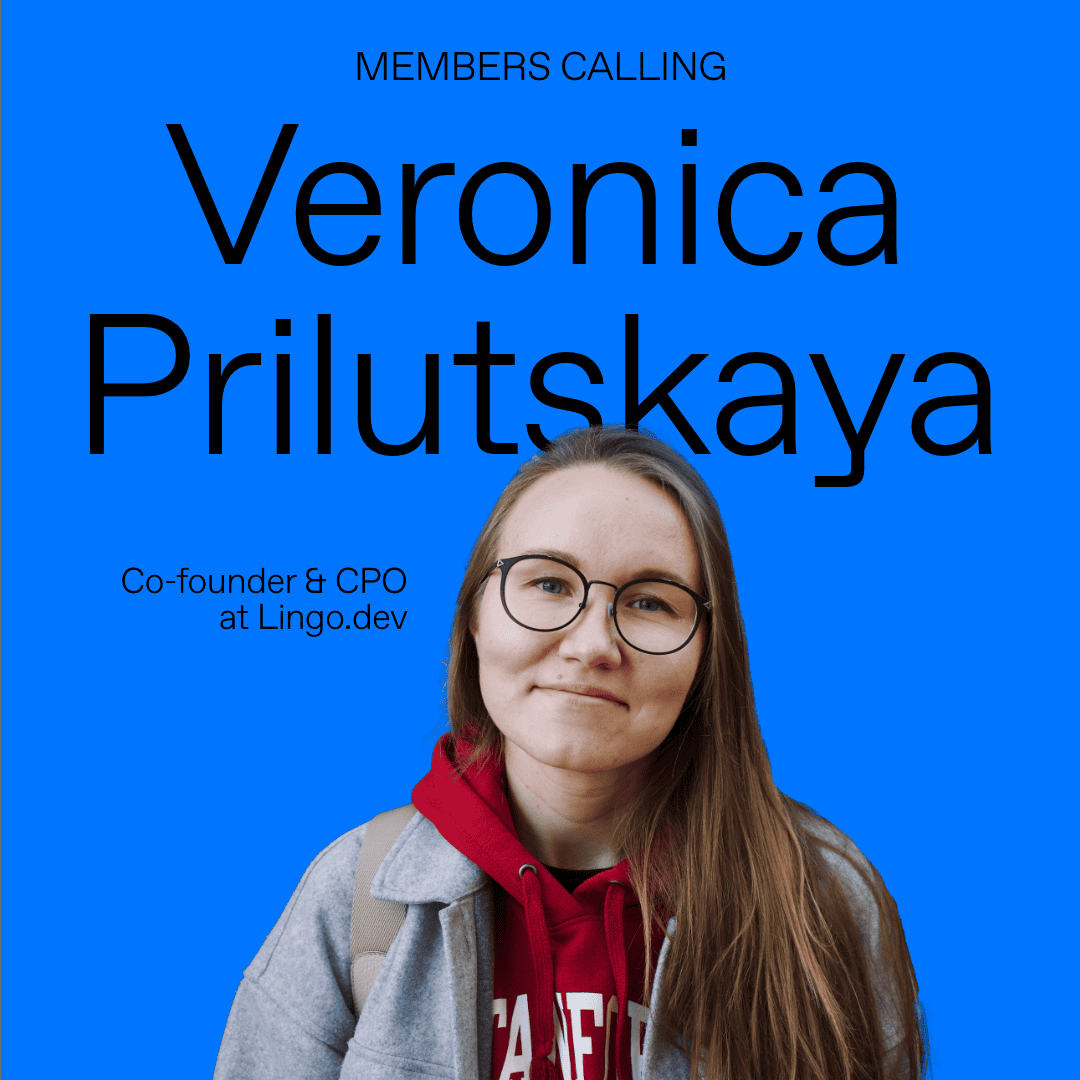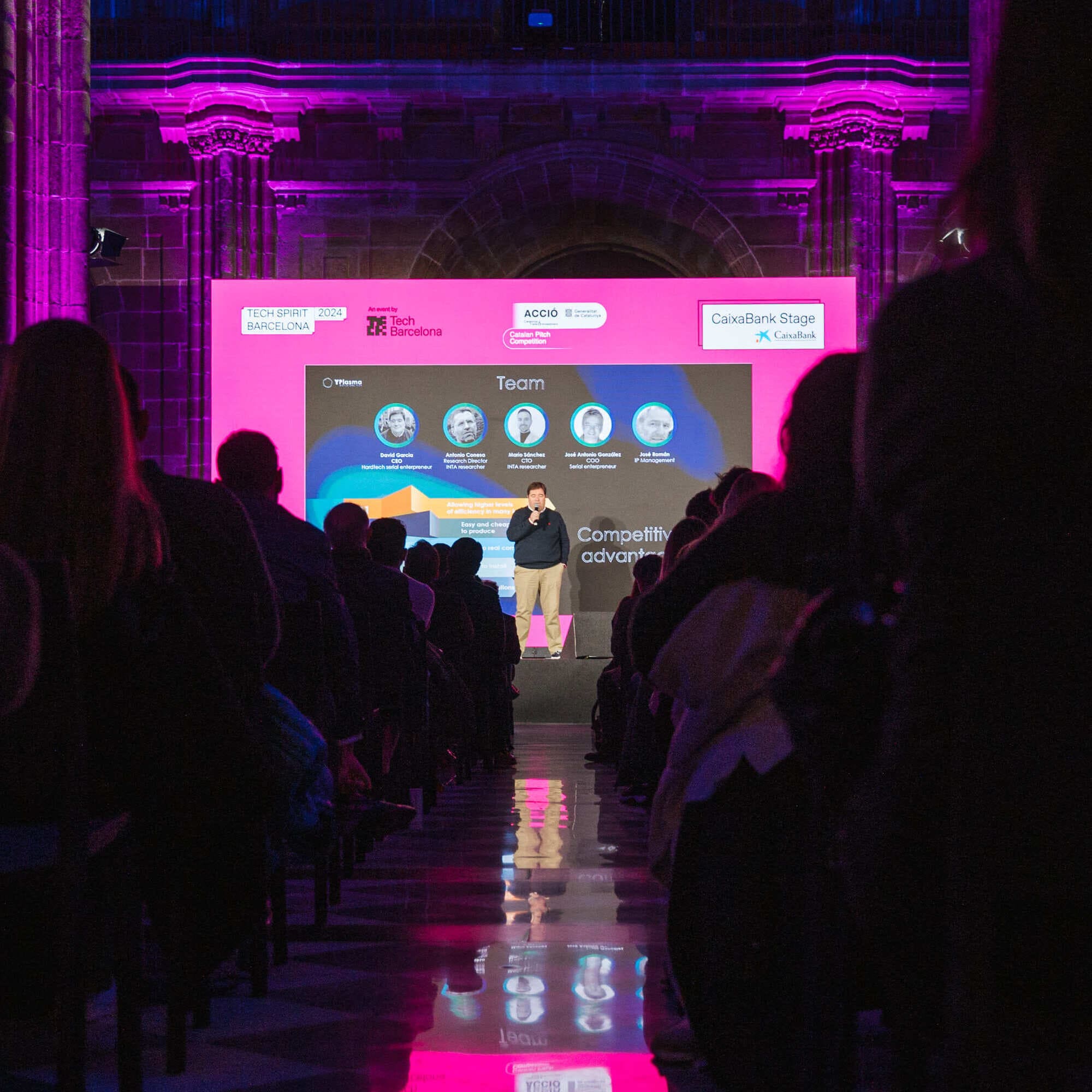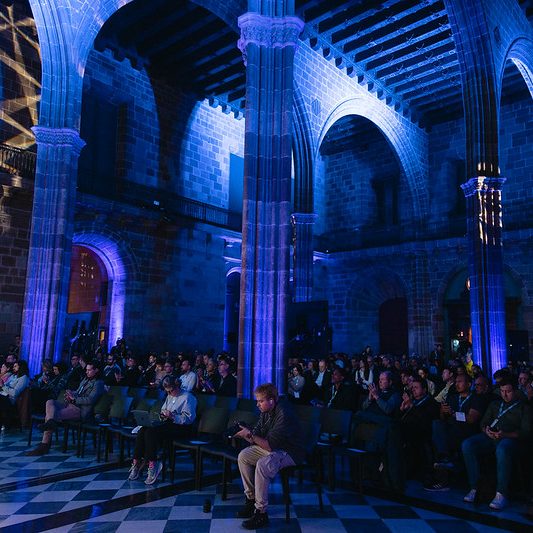Noticias
Members Calling #116 | Veronica Prilutskaya: “Complex AI should feel simple to users”

By the age of four, Veronica Prilutskaya (Belarus, 1993) was already competing in math contests. She went on to study Computer Science and Applied Mathematics, specializing in AI and Machine Learning while leading data science initiatives for U.S. retailers and Japanese companies.
She later co-founded Lingo.dev, an AI-powered localization tool that helps developers automatically translate software into multiple languages.
TB: What is the purpose of your project?
VP: Making AI understand software context deeply enough to produce authentic translations instantly. We’re turning what used to be a manual, error-prone process, into intelligent infrastructure that just works.
TB: Where are you at and where do you see it in two years?
VP: Our AI engine currently processes millions of strings across 83 languages. In two years, we’ll make AI-powered localization as fundamental to software development as databases or authentication.
TB: A good idea you’ve had.
VP: Building AI systems that learn from how developers actually structure their code. This helped us automate localization while preserving the context that matters for each product.
TB: What is the biggest challenge you have faced?
VP: Teaching machines to understand product context at scale. Everyone said accurate AI localization was impossible and we had to rethink our entire approach to prove them wrong.
TB: Best advice you’ve ever been given.
VP: Complex AI should feel simple to users. If developers need to understand how our AI works to use it, we’ve failed.
TB: A role model.
VP: My university mathematics professor who showed me how elegant solutions emerge from deeply understanding complex problems. She approached each challenge with both rigor and creativity.
TB: A technology that will shape the future.
VP: AI that augments human creativity instead of replacing it. Infrastructure that handles complexity automatically so humans can focus on innovation.
TB: Face-to-face or remote?
VP: Remote-first with strategic in-person collaboration. We built our first AI models remotely across different continents, proving that distance doesn’t limit innovation.
TB: A startup or company.
VP: GitHub Copilot. They showed how AI can enhance developer workflow without getting in the way.
TB: What makes you disconnect?
VP: Hiking, there’s something about solving complex AI problems while walking in nature that brings clarity.
TB: A book to recommend.
VP: ‘Zero to One: Notes on Startups, or How to Build the Future’, by Blake Masters and Peter Thiel, resonated deeply with our mission to rebuild localization from first principles rather than iterating on broken processes.
TB: A series, movie or song that defines your moment in life.
VP: ‘A Beautiful Mind’ reminds me that breakthrough innovations often come from seeing patterns others miss.
TB: A recipe, a restaurant.
VP: Paella at Maná 75 in Barcelona is where we’d brainstorm AI architectures and debate the future of software localization.
TB: A place in the world.
VP: Barcelona, where we found the perfect blend of tech innovation and quality of life to build something meaningful.
TB: Where would you invest 100k?
VP: AI infrastructure that solves real engineering problems. Not theoretical AI research, but practical systems that make developers more productive.
TB: If you weren’t an entrepreneur….
VP: I would lead AI research at a developer tools company. The intersection of AI and developer experience is where the most interesting problems live.
TB: What is Tech Barcelona for you?
VP: A community that proves you can build world-changing AI infrastructure from anywhere, not just Silicon Valley.


